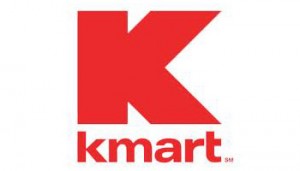 In a response to a lack of communication during the online application process, the National Law Forum reports that an increasing number of job seekers are suing employers who are in violation of the Fair Credit Reporting Act (FCRA).
In a response to a lack of communication during the online application process, the National Law Forum reports that an increasing number of job seekers are suing employers who are in violation of the Fair Credit Reporting Act (FCRA).
In a recent class action lawsuit against K-Mart, prosecutors say that the online applications that they filled out for positions at K-Mart are in violation of the FCRA. The retailer allegedly utilizes buttons on their online applications that either say “decline” or “accept.” These buttons are the only means offered by K-Mart to obtain an applicant’s consent to submit to a background. Apparently, this simple button click is not the correct way to obtain a background check authorization from an applicant.
According to the Fair Credit Reporting Act, in order to provide full disclosure to a job applicant:
a clear and conspicuous disclosure has been made in writing to the consumer at any time before the report is procured or caused to be procured, in a document that consists solely of the disclosure, that a consumer report may be obtained for employment purposes; and the consumer has authorized in writing (which authorization may be made on the document referred to in clause (i)) the procurement of the report by that person.
The simplicity of a “decline” or “accept” button does not constitute a written authorization, prosecutors say. Employers who utilize online job applications argue that under the Electronic Signatures in Global and National Commerce Act (E-Sign), electronically authorizing background checks are permitted. However, E-sign only applies to consumers or customers, not job applicants.
(The comments below are part of First Contact HR’s opinion column where we offer the writer’s opinion on this post’s specific topic and thus should not be taken as legal advice.)
While it is certainly okay to obtain a background check authorization from an online job application, it is important to keep in mind that the authorization must:
- Provide a clear and conspicuous disclosure in writing to the applicant that a consumer report for employment purposes will be procured;
- The consumer has authorized in writing (such as e-mail, mouse click “yes” )the procurement of the report, and;
- The electronic authorization must be “capable of being retained and accurately reproduced for later reference for the benefit of the consumer. Learn more
Regarding the K-Mart matter, it appears the company failed to satisfy the FCRA requirement stated above by requesting applicants merely to click a mouse button labeled “accept” or “decline.”
Although an electronic signature may prove to be a legally valid authorization to conduct a background check (under the FCRA), job applicants may be reluctant to accept the electronically-signed authorization and may require an actual hardcopy signature. To be safe, it might be prudent to stick with hardcopy signatures that are stored electronically with respect to background check authorizations.










 It’s no surprise that basically anyone and everyone can conduct a simple background check on whoever they like. With companies like
It’s no surprise that basically anyone and everyone can conduct a simple background check on whoever they like. With companies like 